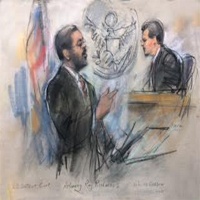Ecorse DUI-DWI Lawyer, Michigan
Sponsored Law Firm
-
 x
x

Click For More Info:
-
Richards & Associates, PLLC
200 East Big Beaver Road Troy, MI 48083» view mapCriminal Defense Accomplished Criminal Defense Attorney
If you face criminal charges, you deserve an experienced defense lawyer who has a reputation for winning the tough cases.
800-844-5250
Christopher Wayne Quinn II
✓ VERIFIEDFelony, DUI-DWI, Misdemeanor, Traffic, Bankruptcy
Criminal Defense Attorney Handeling Felony and Misdemeanor Cases
At the law offices of Quinn and associates our motto is knowledge, excellence, and determination. The professionals at The Law Offices of Quinn & Asso... (more)
Nickolas Darin
Divorce & Family Law, Misdemeanor, Felony, DUI-DWI
Status: In Good Standing Licensed: 12 Years
FREE CONSULTATION
CONTACTPaul M. Hughes
Traffic, DUI-DWI, Criminal, Accident & Injury
Status: In Good Standing Licensed: 40 Years
Margaret Sind Raben
Litigation, White Collar Crime, DUI-DWI, Criminal
Status: In Good Standing Licensed: 38 Years
Joseph Benjamin Gale
Divorce & Family Law, DUI-DWI, Identity Theft, Constitutional Law
Status: In Good Standing Licensed: 10 Years
Joseph Samuel Dodds
DUI-DWI, Traffic, Criminal, Juvenile Law
Status: In Good Standing Licensed: 11 Years
John A. Gyorgy
Power of Attorney, Other, Divorce, DUI-DWI, Collection
Status: In Good Standing Licensed: 47 Years
 Ray Richards Troy, MI
Ray Richards Troy, MI AboutRichards & Associates, PLLC
AboutRichards & Associates, PLLC Practice AreasSpecializations
Practice AreasSpecializations

